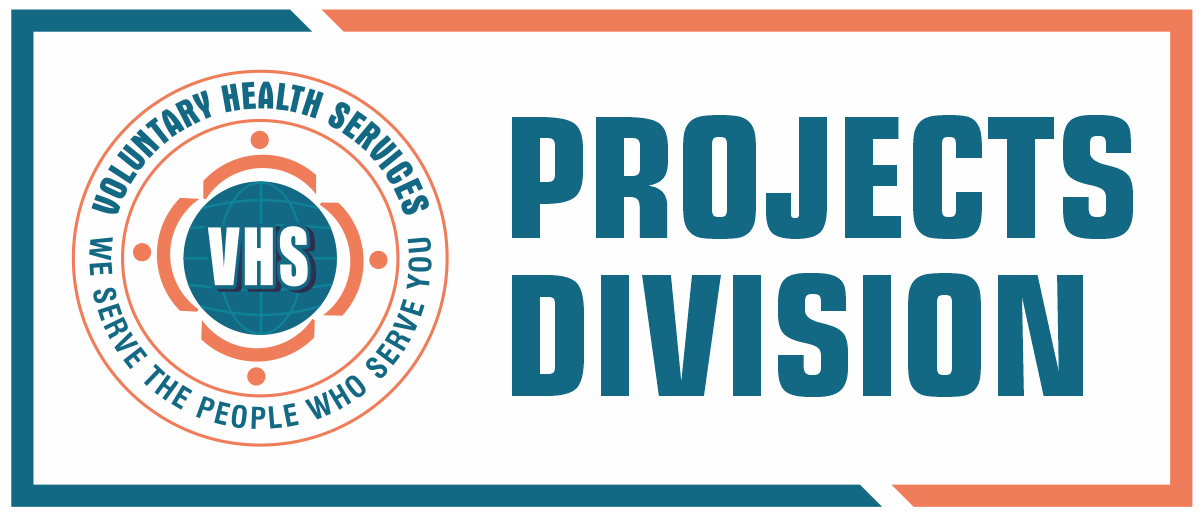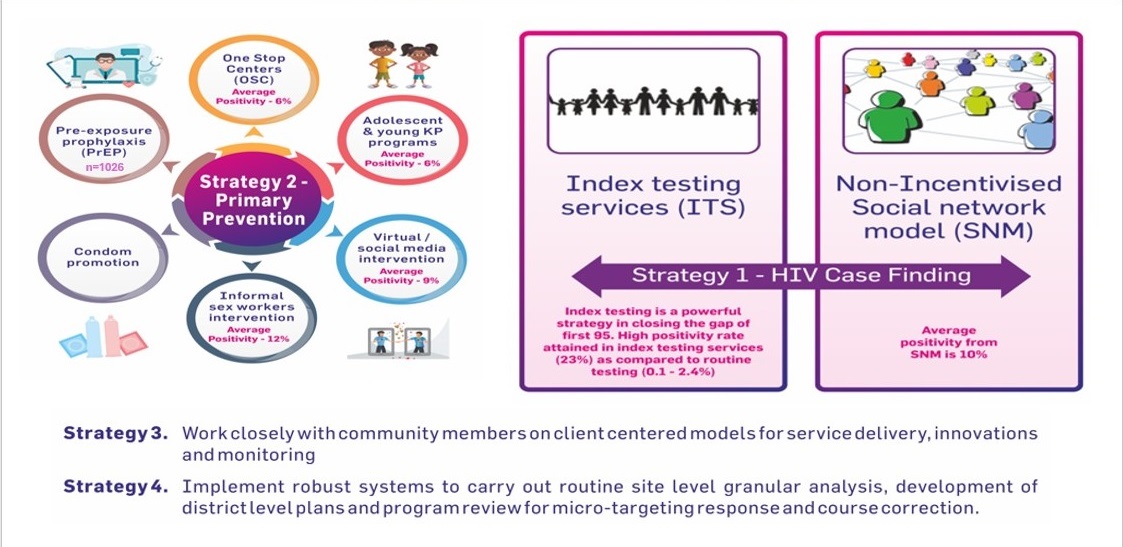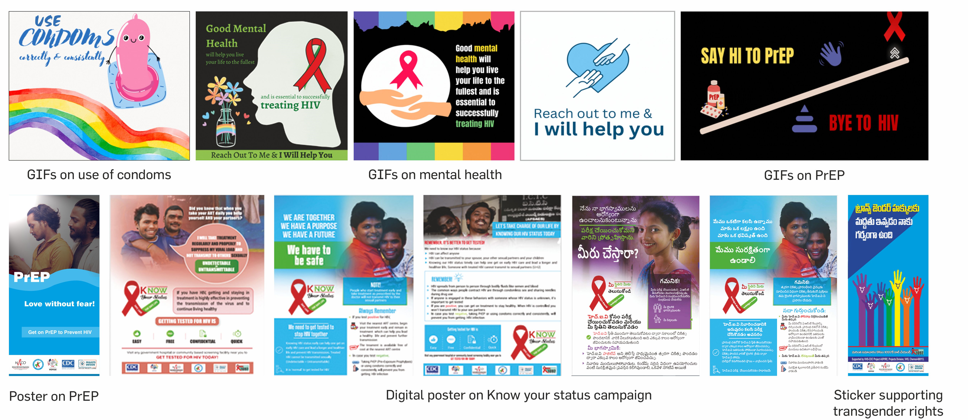
The Voluntary Health Services (VHS), Chennai in collaboration with Andhra Pradesh State AIDS Control Society (APSACS), under the guidance of National AIDS Control Organization (NACO) and with the support from Centers for Disease Control and Prevention (CDC) - Division of Global HIV & TB (DGHT) is implementing Project ASPIRE (Advancing Sustainability Partnerships and Innovations for Reaching Epidemic control) in 26 districts of Andhra Pradesh, India from September 2020 to September 2025.
The goal of the project is to collaborate with government, CSOs and community to scale up proven strategies and demonstrate newer approaches to saturate access to critical primary prevention interventions, HIV case finding, linkages to treatment, social protection and vital health services including mental health to attain 95-95-95 targets among key population (KPs – Female sex workers, Men who have sex with men, transgenders, people who inject drugs) including adolescent KPs to achieve epidemic control in the state of Andhra Pradesh (AP).
This project has its Project Management Unit (PMU) office at VHS, Chennai and its field office at Andhra Pradesh.

Strategy 1: HIV case finding: The project’s primary focus is HIV case finding and VHS through Project ASPIRE is supporting APSACS, Government of Andhra Pradesh in fast tracking the UNAIDS’ first 95 target.
Index testing services - Through a collaborative effort, the project is implementing index testing at scale in all 26 districts of AP in 230 Integrated Counseling and Testing Centers (ICTCs), 53 Anti-retroviral testing (ART) centers, 84 Targeted interventions (TIs) of all districts and in community intervention sites through nine one stop centers, five informal sex workers intervention and three social network sites.
Social network testing services (SNS) – The project is demonstrating a non-incentivized network testing services model reaching out to underserved key populations who are left behind in the response.
Blending index testing with network testing – In order to reach out to the highly vulnerable key population and high-risk individuals, blending of network testing with index testing is being implemented among index clients since February 2024.
Strategy 2: Primary prevention: The project is focusing on prevention interventions for reaching the populations left behind by scaling up and implementing differentiated approaches tailored to the needs of those who remain underserved to close “last mile” gaps.
One stop centers - The project is implementing nine one-stop center intervention for all key populations by delivering six package of services (HIV prevention, general health/STI clinical services, gender based violence services, TG care services (helpdesk, gender affirmation, mental health, NCD, ART services), linkage to social protection services, referrals services for mental health & NCD, cervical cancer, ART services). Through this we have established a robust platform for providing combination prevention services to underserved key populations. The model implemented for transgender population is integrating transgender care in government health system through a TG helpdesk in government medical college hospitals.
* One Stop Centers (OSC) are stigma-free safe space for KPs that offers a comprehensive package of services including mental health across the state.
Virtual intervention – The project is demonstrating a location-based dating platform intervention (LBDPi) from October 2021. The LBDPi is effective in identifying high-risk MSM/transgender and transitioning them (i) online to offline and (ii) online to online, for HIV services. The project is also demonstrating prevention interventions through a variety of social media platforms including Facebook, Instagram and WhatsApp that are being widely used by key populations and majority of them possess smart phones.
Informal sex workers intervention – The project has carried out a community-to-community listening exercise and designed an intervention tailored to informal networks of sex workers. The core strategies adopted are identifying network operators and reaching out to informal networks of sex workers. Secondly, snowballing technique is adopted to reach out to the underserved networks through the registered iFSWs and reaching out to their social media (WhatsApp, Facebook) and physical networks.
Adolescent and young key population (AYKP) - The project through a listening exercise among young key population gained a good understanding of the lived experiences and meanings of risk behavior and health seeking behavior from the perspectives of the young key populations themselves. It provided vital information to guide the development of an evidence-based intervention addressing the needs of young KPs. All the interventions of Project ASPIRE focus on HIV testing among Young KPs. The project is integrating the AYKP with the government Rashtriya Kishore Swasthya Karyakram (RKSK), Nehru Yuva Kendra (NYK) and other government departments for expanding the reach and sustaining the response.
Condom promotion - Project carried out a condom gap analysis in AP and designed a total market approach to address the condom gap in the state.
PrEP intervention program - VHS-Project ASPIRE is demonstrating a cost-subsidized payment PrEP model through the one stop centers and PrEP intervention is integrated in all prevention and HIV case finding interventions. The project is also demonstrating PrEP intervention through private health care providers and through tele-PrEP approach.
Strategy 3: The project works closely with community members on client-centered models for service delivery, innovations and monitoring. Under this strategy, the project is supporting APSACS in implementing the community systems strengthening activities including developing a team of community champions.
Strategy 4: Implement robust systems to carry out routine site level granular analysis, development of district level plans and program review for micro-targeting response and course correction.
HIV case finding
Primary prevention
Community system strengthening (CSS)
Other initiatives


Director - Projects
CHARTERED - Projects Division
The Voluntary Health Services (VHS)
Rajiv Gandhi Salai, TTTI Post,
Taramani, Chennai – 600 113.
Email ID: williams@vhsprojects.org
For additional information on VHS Projects Division - CHARTERED, its objectives, partnerships, key activities, projects managed, overall achievements, key publications, and publications for downloading, please visit or click Here